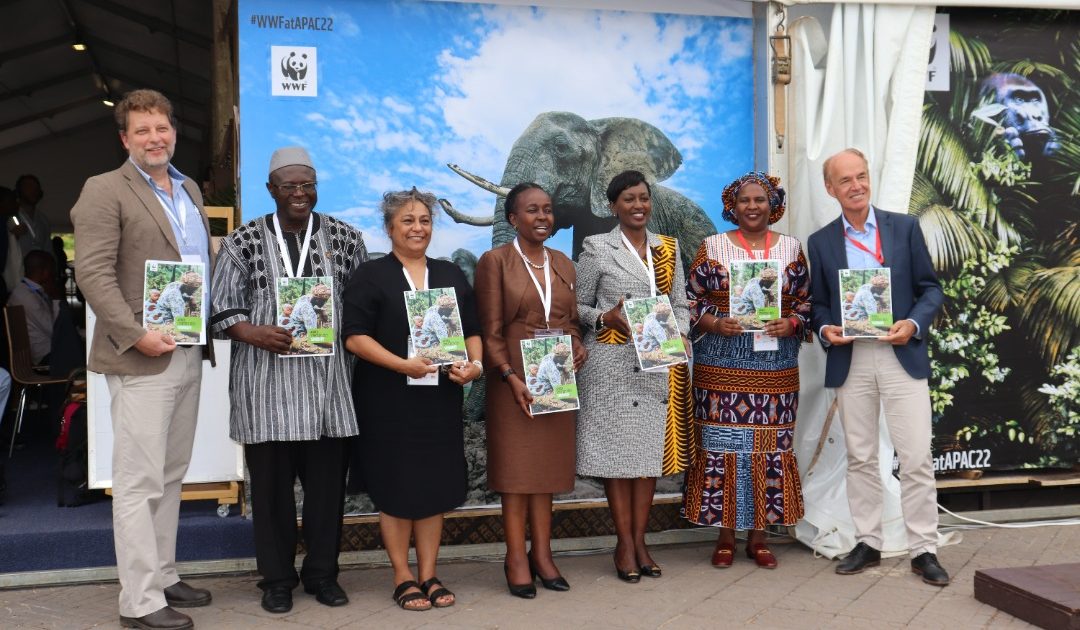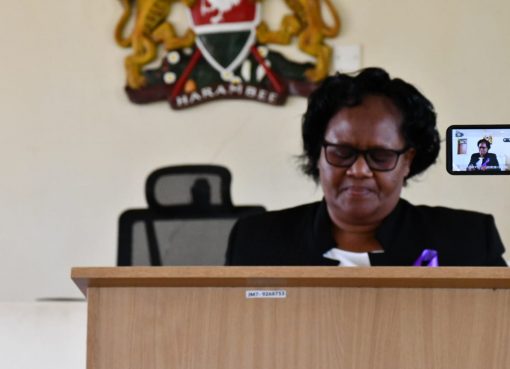African countries have been challenged to prioritise environmental conservation and stop the business as usual attitude that has led to extensive degradation of their natural resources.
The call comes against the backdrop of global concern that respective governments have failed to allocate adequate resources for nature conservation and deployed uncoordinated approaches which resulted in negative impact on this very important initiative.
In line with this, the World Wildlife Fund (WWF) in Africa has launched a “Strategic Plan for Africa: 2021 – 2025”, echoing the call for the continent to move beyond business as usual and make nature an African business.
The launch which took place at the Africa Protected Areas Congress (APAC) held at the Kigali Conference Centre in Rwanda, seeks to position Africa’s protected and conserved areas within the broader goals of economic development and community wellbeing.
The strategy leverages on the power of the people to transform lives and landscapes through ensuring coexistence in shared spaces, transforming Africa’s balance sheet and an integrated-inclusive whole-of-society approach.
Speaking at the forum, the WWF International Director General Marco Lambertini said the new strategy provides a framework for strengthening partnerships in the region, both within WWF and all relevant stakeholders.
“The plan provides a framework for consolidating the organisation’s work in the region and leveraging the outcomes of this critical Congress to strengthen conservation in Africa through shared space and making nature everyone’s business,” he explained.
Marco said through coexistence and inclusive society approach, they are committed to working together to transform the conservation narrative in Africa.
He further noted that APAC presents a unique opportunity to bring everyone together to reconnect after isolation and reflect on the challenges and opportunities of protected and conserved areas to make progress towards a collective conservation vision.
In her remarks, WWF Africa Regional Director Alice Ruhweza said the launch comes at a time when planet sustainability and the urgency to meet people’s needs is facing enormous pressures attributed to human activities.
Ruhweza explained that it is impossible to overcome these pressures and realize the promises as an individual, country or one organization.
“We must embrace these challenges and opportunities together – with diversity as our strength – a collection of voices across communities, countries, sectors and political perspectives coming together as one voice for people and the planet,” she emphasized.
To achieve its objective, the plan is to work with the government, business-investors, organized civil society, youth, indigenous people and local communities.
“We want to debunk the myths that conservation and nature are the reserve of an elite few. Individuals, communities, and governments are coming together to achieve net zero and reverse biodiversity loss in order to build a better future for Africa,” the Director reiterated.
She said there is a need to create spaces for genuine discussion and learning, reach across boundaries to ensure voices are heard, strengthen partnerships and implement robust environmental and social safeguarding frameworks.
“WWF main objective is to stop the degradation of the planet’s natural environment and build a future in which people live in harmony with nature by conserving the world’s biological diversity,” she explained.
Ruhweza called for promotion of sustainable use of renewable natural resources, reduction of pollution and wasteful consumption.
The congress aims to increase the understanding of the vital role parks played in conserving biodiversity and delivering the ecosystem services that underpin human welfare and livelihoods.
In East Africa, the main focus of attention right now is the extensive destruction of wetlands along the shores of Lake Victoria covering all the three partner states of; Kenya, Uganda and Tanzania with experts warning that if not contained portend a bleak future where plastics projected to replace fish stocks in the shared water mass by 2050.
The wetlands are known to be the breeding sites for different fish species; specifically, Omena (sardines), tilapia and Nile Perch. Subsequently, Lake Victoria Fisheries Organization (LVFO) working in collaboration with other players have set out to tackle the problem head on by sensitizing various organizations, the fisher-folk and local communities to learn how best to promote nature conservation.
LVFO recently took journalists affiliated to the Media for Environment, Science Health and Agriculture (MESHA) team led by the Organization’s Chief Executive Officer (CEO), Daniel Aghan on a fact-finding mission on Lake Victoria where a Socio-Economist Research Scientist with Kenya Medical Research Institute (KEMRI) Patrick Otuo warned that unregulated fishing has contributed immensely to the destruction of the environment leading to the fast disappearance of different fish species and shrinking wetlands.
The good news is that the ongoing mapping process aimed at covering the entire 5000 square kilometers will ultimately minimize the extensive destruction of the riparian areas that hoteliers and private developers have encroached by extending their perimeter walls right inside Lake Victoria, the second largest fresh water mass.
Kisumu County Director of Environment Tom Togo said there was an urgent need to strictly regulate all the development activities around the lake if we hope to jealously protect the wetlands and the shared water mass ecosystem in general.
By Joseph Ouma and Lorine Awino




